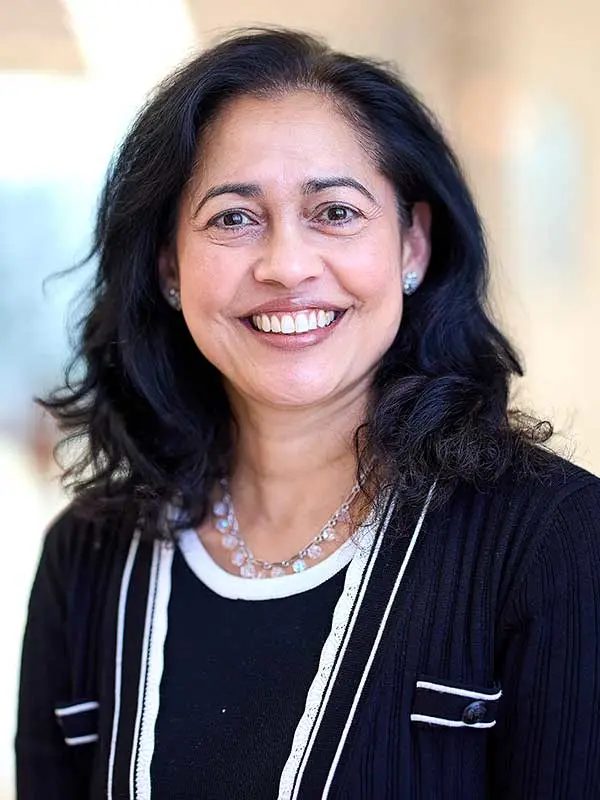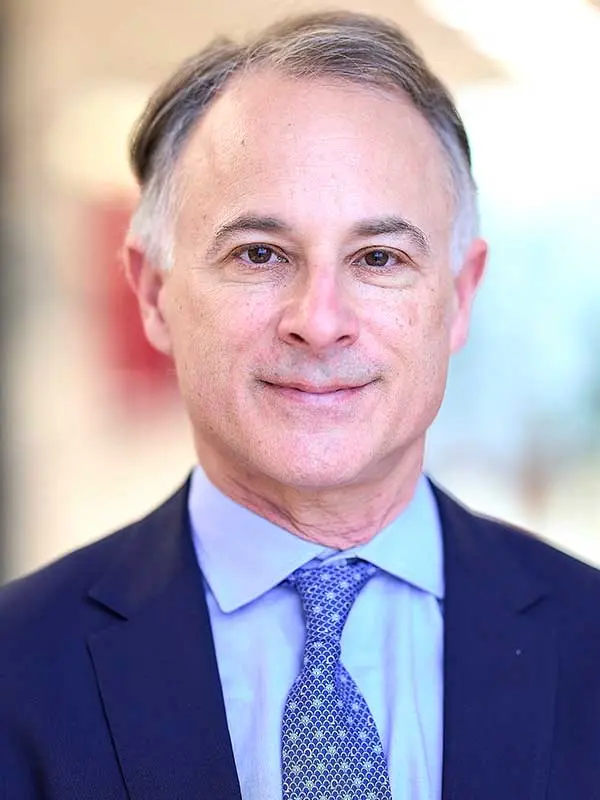In March 2024, hepatologists such as Mount Sinai’s Meena Bansal, MD, gained a powerful new weapon in the battle against metabolic dysfunction-associated steatohepatitis (MASH): resmetirom. Now, they are working to find the patients who need it.
Approved by the U.S. Food and Drug Administration, this thyroid hormone receptor beta agonist became the first treatment ever indicated for the disease, expanding the range of patient interventions beyond the realm of lifestyle changes. The challenge for Dr. Bansal is identifying patients who would benefit from treatment.
“The number of people who have been screened for MASH is a small percentage compared to the number who need to be screened,” explains Dr. Bansal, Director of the MASLD/MASH Center of Excellence at the Icahn School of Medicine at Mount Sinai and Chief of the Division of Liver Diseases for New York’s Mount Sinai Health System. “Part of the problem is that many people who have MASH do not know about the disease and most are unaware they have it.”
Dr. Bansal aims to help change that through MASH Cities. This innovative undertaking is bringing together officials, community and industry leaders, and health care providers in New York City, Los Angeles, Houston, and Chicago to address the growing but still underrecognized challenge of MASH and metabolic dysfunction-associated steatotic liver disease (MASLD). More than one in three adults and one in 10 children nationwide are estimated to have the disease, necessitating not just more engagement and intervention, but also a strategic approach to inform these efforts.
“Mount Sinai has a history of being at the forefront of public health and awareness initiatives, particularly in liver health,” Dr. Bansal says. “Given that there are few, if any, coordinated, comprehensive global awareness initiatives related to this issue, we saw an opportunity to create a city-level approach that could have an impact.”
A key goal for Dr. Bansal is to encourage more individuals with diabetes mellitus or living with obesity—which increases their risk for developing MASH and MASLD—to know their fibrosis-4 (FIB-4) score. This noninvasive calculation is based on standard laboratory tests—aspartate aminotransferase, alanine transaminase, and platelets—along with the individual’s age. Patients with an intermediate (1.30-2.67) or high (>2.67) score should undergo further assessments, such as a FibroScan, and be considered for referral to hepatology.
“I want to see our efforts lead to more people being screened early, when interventions can impact the disease trajectory.”
- Meena Bansal, MD
Dr. Bansal is collaborating on MASH Cities with Jeffrey V. Lazarus, PhD, MIH, Professor of Global Health at the City University of New York Graduate School of Public Health & Health Policy and an adjunct faculty member at Icahn Mount Sinai. He previously helped launch HepCityFree, which is working to eliminate hepatitis C at the city level in Spain, and the hepatitis C micro-elimination approach, in which multiple stakeholders work together to tailor interventions for smaller populations of patients. He believes the success of these efforts, and of initiatives such as Fast-Track Cities (HIV), CARDIO4Cities, and Cities Changing Diabetes, makes a strong case for taking a city-level approach to MASH. That inspired him to create MASH Cities.
“Seville is moving faster on hep C than Spain as a whole and London is moving faster on HIV than England,” Dr. Lazarus says. “I think this demonstrates that it is possible to achieve change faster through more localized approaches than initiatives that are solely aimed at the national level.”
One of the first initiatives launched through MASH Cities is a CUNY-funded survey to gauge awareness about MASH and MASLD in each of the four participating cities. The survey will recruit 1,000 randomly selected participants from each city’s general population, as well as 1,000 individuals at higher risk for MASH/MASLD because they have type 2 diabetes, and 1,000 general practitioners from each city. The goal is to establish a baseline for awareness levels, identify factors driving lack of awareness, and explore misconceptions about the disease. Each participating city has committed to hosting launch events for the results.
“Our hypothesis is that MASH awareness among the general population is very low, and higher, but not high enough, among people living with diabetes,” Dr. Lazarus says. “We also hypothesize that primary care physicians may know about it but may not know what to do. Our findings will support efforts in each city to develop action plans and interventions that raise awareness and empower patients to advocate for screening.”
Dr. Bansal adds that the survey aims to increase patients’ awareness of their FIB-4 results and empower them to calculate it using online calculators or consult with their doctors to obtain it.
“It is a first-line-of-defense screening tool, which is essentially free,” she says. “Screening and identifying those who may have significant fibrosis is the endpoint so they can be linked to liver care and not find out much later that they have cirrhosis or liver cancer.”
Based on outcomes, Drs. Bansal and Lazarus anticipate they will expand the survey to more cities and demographics in 2025. In the meantime, they are looking at collaborating with other health programs and organizations, and they are advocating for the New York City Department of Health and Mental Hygiene’s HealthyNYC plan to include MASLD and MASH. They are also taking steps to raise awareness about MASH and MASLD on a global scale. On Monday, September 23, 2024, Dr. Lazarus led the first United Nations General Assembly side event on MASH, with Dr. Bansal and experts from around the world participating.
“I want Mount Sinai to be at the forefront of public awareness and engagement on MASH and MASLD,” Dr. Bansal says. “More than that, I want to see our efforts lead to more people being screened early, when interventions can impact the disease trajectory.”
Featured

Meena B. Bansal, MD
Director, MASLD/MASH Center of Excellence; Chief, Division of Liver Diseases

Jeffrey V. Lazarus, PhD, MIH
Professor of Global Health, City University of New York Graduate School of Public Health & Health Policy
